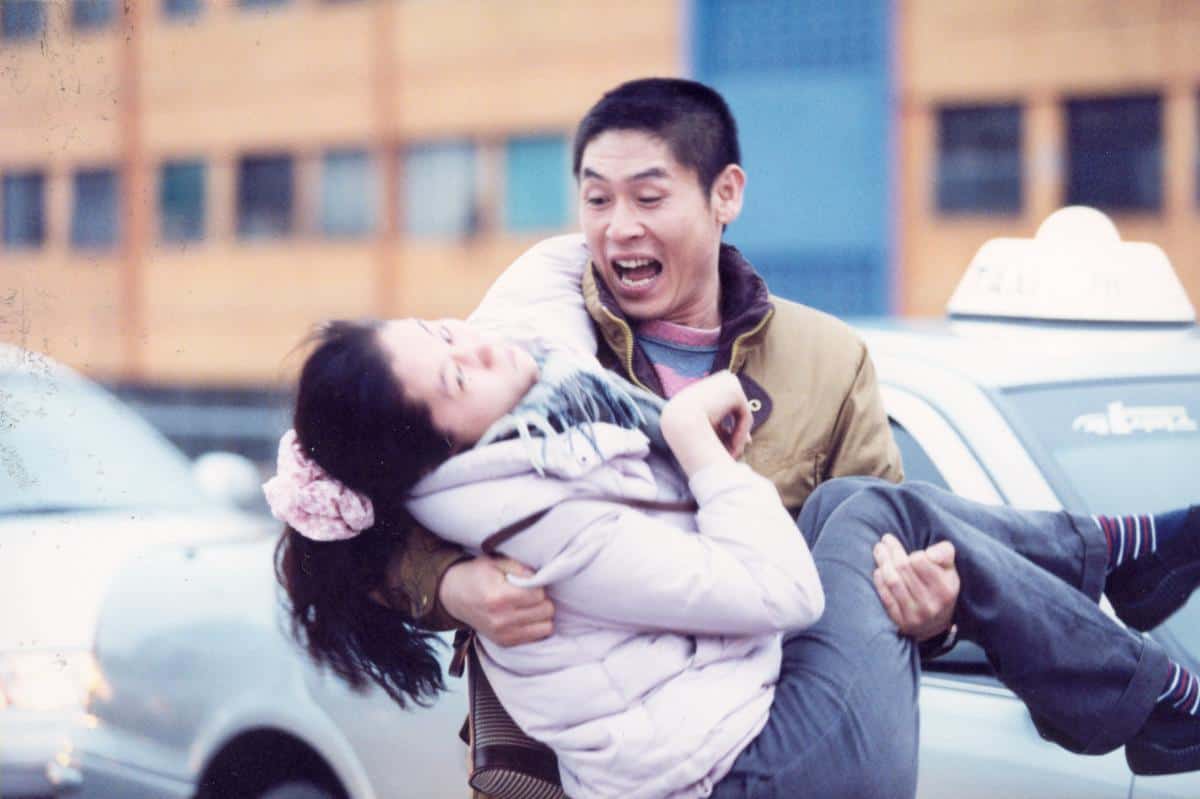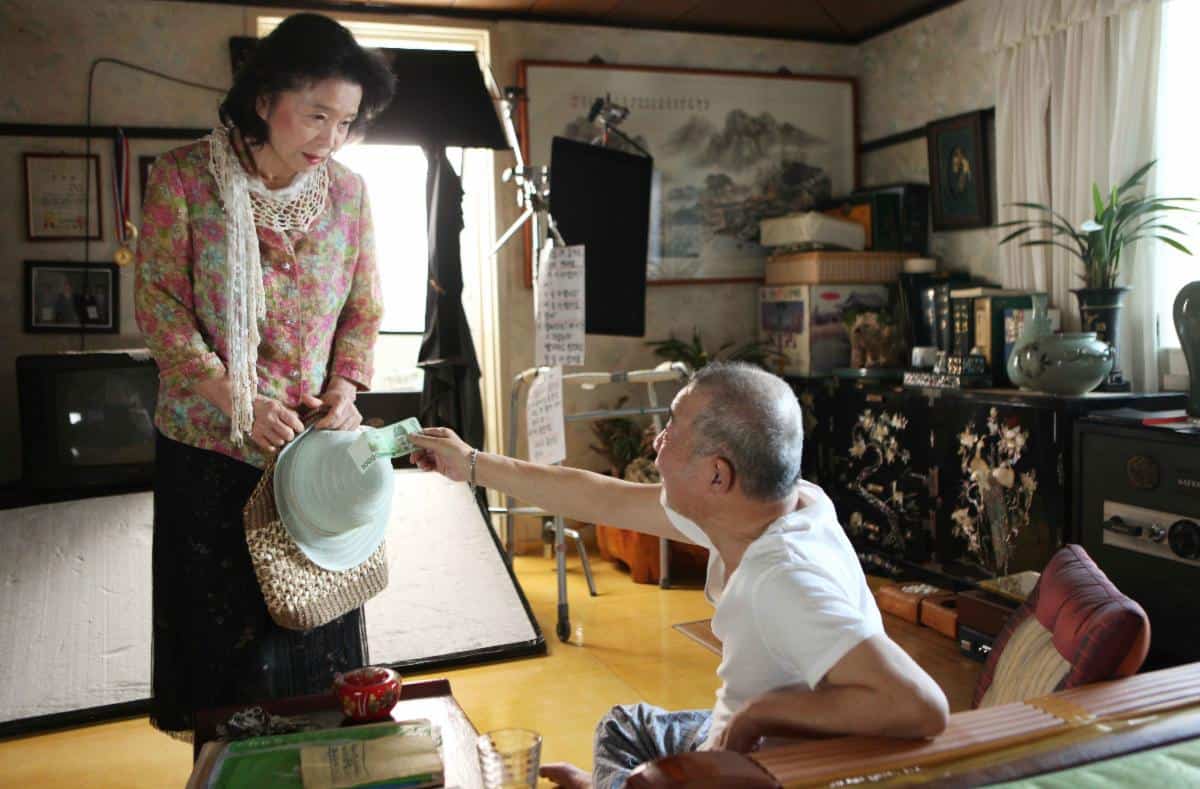Lee Chang-dong, one of Korea’s most celebrated filmmakers, made his directorial debut with Green Fish in 1996. Since then, he has solidified his place as a leading figure in Korean New Wave cinema, standing alongside the likes of Bong Joon-ho, Park Chan-wook, and Kim Ki-duk. Known for his dark, intricate narratives that delve into themes of innocence lost, psychological trauma, and the complexities of human relationships, Lee Chang-dong has become a master storyteller, revered around the world.
To honor his remarkable contributions to cinema, Film Movement is set to release new 4K digital restorations of Lee’s first three award-winning dramas—Green Fish, Peppermint Candy, and Oasis—along with his acclaimed 2010 film, Poetry. This special Film Movement Classics Blu-ray set, packed with extras, will be available in Summer 2024, following theatrical screenings of the restorations in select North American theaters this Spring.
Green Fish (1996)
Lee Chang-dong’s directorial debut, Green Fish, tells the story of Makdong (Han Suk-kyu), a naïve young man who returns home after military service to find his hometown unrecognizable—modernized and gentrified beyond recognition. When he intervenes to help a woman being harassed at a train station, Makdong is unwittingly drawn into the dangerous underworld of criminal gangs, lured by the promise of wealth and comfort. Unprepared for the violence and exploitation that follow, he soon faces the dire consequences of his choices. Green Fish won the Best Film and Best New Director Awards from the Korean Film Critics Association and the Blue Dragon Awards, gaining international acclaim. John Fidler of Senses of Cinema praised it as “wrenching, tonally nuanced… packs a quiet wallop,” while Martin Sandison of Eastern Kicks called it “a superb watch.”
Peppermint Candy (1999)
A cornerstone of Korean New Wave cinema, Peppermint Candy is a powerful exploration of one man’s life, told in reverse-chronological order. The film begins with the tragic suicide of Yongho and traces back through 20 years of his life, from his troubled middle age to his hopeful youth. Through seven chapters, the film reflects on South Korea’s tumultuous political history in the late 20th century, offering a poignant elegy for a generation of marginalized individuals. An Official Selection at Cannes’ Director’s Fortnight, Peppermint Candy won the Special Prize of the Jury at the Karlovy Vary International Film Festival and was lauded by critics like A.O. Scott of The New York Times, who described it as possessing “a quiet, heartbreaking power.”

Oasis (2002)
In Oasis, Lee Chang-dong tells the story of Hong Jong-du (Sul Kyung-gu), a man released from prison after serving time for a hit-and-run accident. His attempts to make amends lead him to Han Gong-ju (Moon So-ri), the daughter of his victim who suffers from cerebral palsy and has been abandoned by her family. The two form an unlikely bond, defying societal norms and expectations. The film won the Silver Lion for Best Director and Best Young Actress at the Venice Film Festival, as well as the FIPRESCI Prize, marking Lee’s continued rise on the international stage. Roger Ebert of the Chicago Sun-Times praised Oasis as “a brave film,” while G. Allen Johnson of the San Francisco Chronicle called it “one of the most original films of the decade.”
Poetry (2010)
Poetry is a deeply moving drama that earned Lee Chang-dong the Prize of the Ecumenical Jury – Special Mention and Best Screenplay at Cannes. The film follows Mija, a grandmother grappling with early-onset Alzheimer’s while dealing with the fallout of a brutal crime involving her teenage grandson. As she becomes embroiled in a conspiracy to cover up the crime, Mija finds solace in poetry and nature, though her moments of reverie often come at the wrong time, leading to tragic consequences. Hailed as a masterpiece, Poetry was described by The New York Times’ Manohla Dargis as “an extraordinary vision of human empathy,” and by Andrew O’Hehir of Salon as “a masterpiece.”
These restored films not only highlight Lee Chang-dong’s exceptional storytelling and directorial skills but also offer a unique opportunity for audiences to experience the depth and complexity of his work in stunning 4K quality.
Don’t miss the chance to revisit these cinematic gems when they return to theaters this Spring and become available on Blu-ray this Summer 2024.


